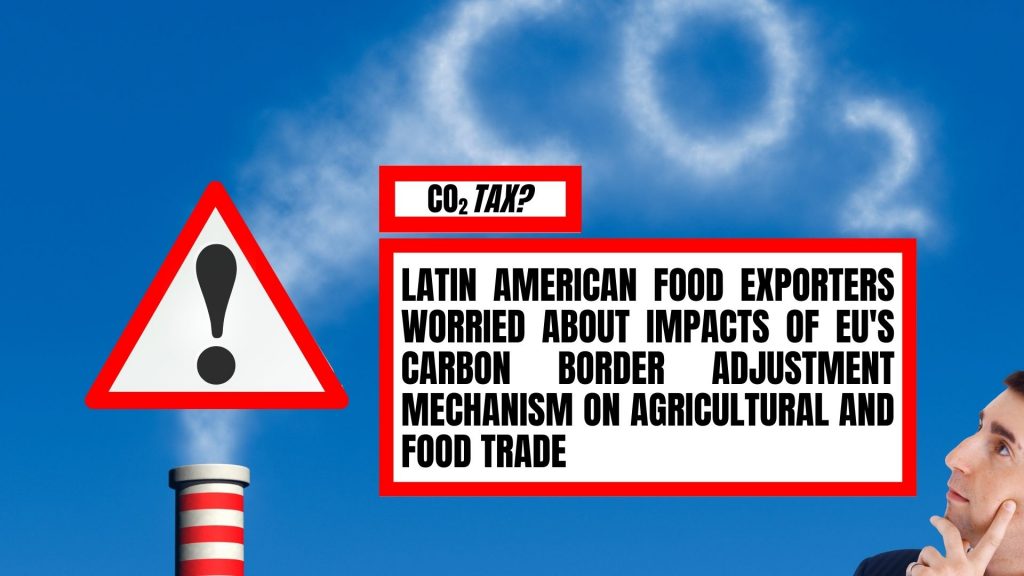Latin American Food Exporters Worried About Impacts of EU’s Carbon Border Adjustment Mechanism on Agricultural and Food Trade
The European Union’s Carbon Border Adjustment Mechanism (CBAM) has been a hot topic of discussion lately, especially for developing countries that export to the EU. The CBAM aims to prevent carbon leakage by requiring importers to pay a carbon price equivalent to that paid by EU producers, creating a level playing field for trade. However, Latin American exporters are concerned that this could put them at a disadvantage.
According to a report by the Inter-American Institute for Cooperation on Agriculture (IICA), the CBAM could have significant impacts on agricultural and food trade in Latin America and the Caribbean. It could increase production costs for exporters and make their products less competitive in the EU market, potentially leading to a decline in exports and income for Latin American farmers and producers.
In addition, Latin American countries are also worried about the environmental effects of the CBAM. The World Bank Group’s report on the CBAM notes that some Latin American countries are among the most vulnerable to climate change and are already experiencing its effects.
Climate Mitigation Actions Latin American Food Producers Can Take to Mitigate the Impact of EU’s CBAM
To help mitigate mitigate the impact of the CBAM and address the urgent need to reduce greenhouse gas emissions, food producers in Latin America can take a number of climate mitigation actions. These include:
- Implementing sustainable farming practices: Practices such as crop rotation, agroforestry, and conservation tillage can help reduce greenhouse gas emissions, increase soil carbon sequestration, and improve soil health.
- Investing in renewable energy: Renewable energy sources such as solar and wind power can help reduce the carbon footprint of food production by replacing fossil fuel-based energy sources.
- Reducing food waste: The food industry is a significant contributor to greenhouse gas emissions, and reducing food waste can help reduce these emissions.
- Improving supply chain efficiency: Improving the efficiency of the supply chain can help reduce greenhouse gas emissions by reducing the amount of energy required to transport and store food product
By taking these climate mitigation actions, food producers in Latin America can reduce their carbon footprint, improve the sustainability of their production practices, and prepare for the potential impacts of the CBAM. In addition, these actions can help reduce costs, increase efficiency, and enhance the resilience of food production systems in the face of climate change.
Green Initiative Offers Climate Certification and Advisory Services to Help Latin American Food Producers Navigate the CBAM and Reduce their Carbon Footprint
Green Initiative offers climate certification and advisory services for climate action to support Latin American food producers in reducing their carbon footprint and complying with potential future policies such as the CBAM. Their services can help identify areas where emissions can be reduced, develop strategies to implement sustainable farming practices, and implement renewable energy solutions. Additionally, their supply chain analysis services can help identify opportunities to improve supply chain efficiency and reduce carbon footprint.
By working with Green Initiative, Latin American food producers can receive expert guidance to navigate the complex landscape of climate policy and sustainability standards, and position themselves for success in a rapidly changing market.

